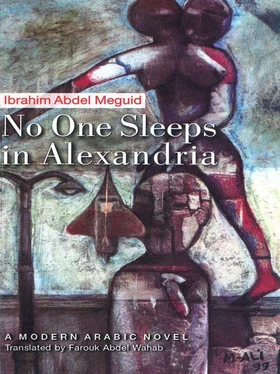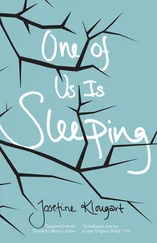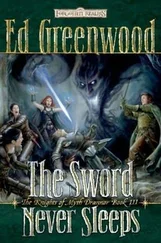Hamza composed himself and replied, “I am afraid that if say I did, nobody would believe me. I’d better keep quiet, Usta.”
Everyone fell silent in the manner familiar to Egyptians after they laugh; a sudden quiet descended on everyone and everything. One of the workers said, “May God make it good.”
“I have a curious story to tell you,” Magd al-Din spoke up.
They looked at him expectantly. Hamza was particularly attentive — he pricked up his cars and was the first to speak, “Go ahead, Sheikh Magd. Perhaps you’ll tell us something new that I don’t know or haven’t seen.”
Magd al-Din smiled and winked to Dimyan to follow the situation. Dimyan was surprised at his friend, who began, “Once when I was a little boy, a young peasant man grabbed me and had his way with me in the field.”
Everyone fell silent in shock. What was Sheikh Magd al-Din saying and why? What exactly did he mean? At that point Hamza got up holding the empty cup of tea and headed for the door as if he was going to make some more tea.
“Why are you silent, Hamza?” Magd al-Din asked. “Why didn’t you say that that happened to you too?”
They heard Usta Ghibriyal laughing loudly for the first time. Dimyan jumped up and exclaimed, “God is great! God is great!”
As for Hamza, his red face turned a yellowish blue. Magd al-Din stood up and went over to Hamza, embraced him, and kissed his head, saying, “I didn’t know it was such a bad joke, my friend.”
When they stopped laughing, Usta Ghibriyal went back to scribbling in his notebook. They noticed that from time to time he was casting furtive, sly glances at Magd al-Din. As for Hamza, he went out to make tea that no one wanted.
A little while later, Magd al-Din went out and saw him sitting away from the wood-burning stove. He had not even put the teapot on. Magd al-Din sat next to him, and Hamza looked at him with a smile and said, “One does not usually make enemies with decent folk. A free man, no matter how poor, never forgets a good deed.”
Magd al-Din felt a great relief. “I don’t know how I got carried away joking like that. When I saw you were embarrassed, I was quite upset with myself.”
“We say more than that everyday, Sheikh Magd.” Hamza answered. “Look at that train!”
It was a freight train. Its flatbed cars were loaded with military equipment and made such a deep grating noise on the tracks that all the workers came out to see it. On every car was a tank or an armored car covered with netting, with one or two soldiers standing next to it. The train was coming from Suez or Cairo and heading for the desert, where there were great concentrations of Allied troops in al-Alamein, Bir Fuka, and Marsa Matruh. The soldiers were not African this time, but English or Australian and wearing khaki shorts in the middle of winter. They were perhaps coming from the south, maybe South Africa. On top of the shorts, they wore khaki short-sleeved shirts and vests without sleeves. The ruddy complexions of the soldiers and their white arms and legs meant that they had not seen the desert before, and since they looked young, perhaps they were new to soldiering.
The train was too fast. The workers saluted the soldiers and shouted, “Hello! Welcome! English is good. German is no good. Churchill is right. Hitler no right,” and other such things that they said on this and other occasions, words that most of them did not understand but which guaranteed good results. The soldiers began throwing packets of Lucky Strike cigarettes, cartons of cookies and chocolate, cans of Australian and New Zealand corned beef and cheddar cheese. Usta Ghibriyal cautioned them to wait until the train cleared the post. They had gotten used to that and also, after the train had left the post, to running and gathering up the goodies on the ground, then bringing them into the post and divvying them up equally, according to who wanted what. Usually the catch was more than enough for all ten of them, and now everyone knew what everyone else wanted or liked. Usta Ghibriyal, for instance, liked Cevlon tea. Hamza, on the other hand, liked cookies and chocolate, which he handed over to his three children and to his co-workers’ children, since they all lived in railroad housing together with workers from posts one through six, whose job sites were not far from them. All the workers would get together for big jobs or when there was an accident. When accidents happened there were no disputes about the goodies. The trains went through more than once every day; the soldiers liberally threw candy, food, and tea. It seemed the war would last for a long time.

On the way home, Dimyan asked Magd al-Din, “Why all these weapons today?”
“Don’t you see the trains loaded with Italian prisoners coming from the desert? The war there is quite hot.”
“It seems like the war will go on for a long time, Sheikh Magd.”
“The weapons come from Suez and from the harbor in Alexandria, and the soldiers come from all over the world, Dimyan. It seems to me it’s not war, but Judgment Day.”
They both fell silent for a long time. Magd al-Din started thinking about Hamza, whom he had mocked today, and how Hamza now seemed noble in his eyes. Then he remembered Lula and what had happened a few days earlier and he grew tense. It was not easy for Zahra to be acquainted with a woman who turned out to be an adulteress. It was not easy also to live in the house of good Dimitri, who since that day had felt ashamed every time he saw Magd al-Din because he had not carefully screened his tenants. What were people saying now about good Dimitri and his children? Could Dimitri have turned down a tenant paying sixty piasters a month? And Bahi, his brother, had he known about Lula? And if he did, how could he have chosen for him to live in the same house? He smiled sarcastically at this last question and heard Dimyan say, “Look, it’s Wahid the plainclothes policeman!”
Wahid was walking toward them in a blue gallabiya with vertical white stripes and a khaki overcoat. He had a white skullcap on his head and a gray scarf around his neck. In his hand he held a long bamboo stick that he waved around from time to time. They knew him well and met him almost every day and shared some of the goodies that the soldiers had given them. He was used to that and did it to all the workers he came across. And even though he was well dressed in clean clothes, and despite his pleasant, placid face, when he spoke he sounded like an uncouth, brutal clod, as Sheikh Magd al-Din described him all the time. Wahid was notorious in the whole neighborhood for shaking down everyone and for having no scruples whatsoever when it came to framing someone. He saw them as he saw them every day, and shouted as if he had just noticed them, “What are you carrying?”
“As you can see, some English canned stuff,” Dimyan answered, smiling, and Wahid said, “You mean from the English warehouses?”
Neither of them knew where the English warehouses were, but they figured that today he wanted to get more than he usually got from them.
“What warehouses! Here, just take a couple of packets of tea, Wahid,” Dimyan said, as his smile grew broader.
But Wahid shouted, “I have to take you in — this is larceny!”
He raised his stick, threatening them. Magd al-Din gave him a long savage look. He had looked around and saw the open space, as the sun was quietly setting, a cool breeze blowing and the dark gently beginning to cover the ground. He could hardly see the rails on top of the crossties, as everything was the color of dust.
“You know, Wahid,” said Magd al-Din, “I could knock you to the ground and slit your throat on the track without anyone seeing you.”
Читать дальше













